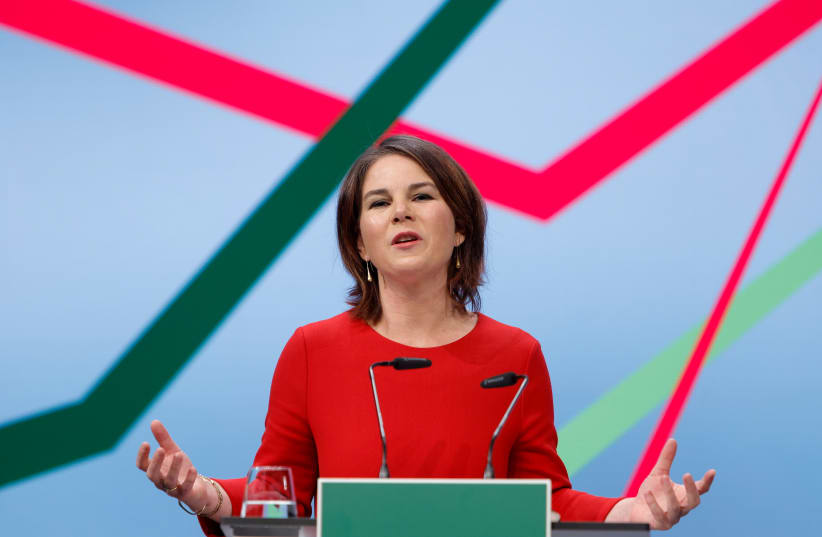Jewish life in Germany is being threatened by hatred from the Left, the Right and the Center, as well as from Islamic extremists and from those wishing to restrict religious traditions, including kosher slaughtering, wearing head coverings or other religious symbols in public, Jewish circumcisions and more.
With a new government on the way after Chancellor Angela Merkel’s retirement, her Christian Democrats (CDU) party will be in the opposition. Many around the world and in Germany are wondering what a new government will bring. With coalition negotiations ending, it is only a formality until a new government led by the Social Democrats (SPD), together with the Green party and the Liberal Democrats (FDP), will take over shortly before the end of the year.
One of the parties to be aware of is the Alternative for Germany (AfD), which will not be part of the government but did get about 10% of the votes. This right-wing, extremist party, often demonizes Muslims and trivializes the Holocaust, which one of their leaders referred to as “bird-feces” in the frame of history.

Some Israeli and right-wing American correspondents have blended out the “domestic” political agenda of the party and have chosen to focus solely on their seemingly pro-Israel positions, which serve as a fig leaf to hide their otherwise racist party platform. And while more than 60 Jewish organizations – representing the vast majority of Jews living in Germany – signed an open declaration warning about the dangers stemming from the AfD, some correspondents have gone so far as to claim that most Jews voted for the AfD. This claim, however, is completely unfounded.
To understand what the future holds, we need to understand the past first. Many people in Germany, including Jews, had become critical of Merkel’s government, which failed Germany in many ways, including in domestic issues, such as immigration and the handling of the pandemic. And while Chancellor Merkel was seen as an outspoken friend of Israel, inundated with awards from Jewish organizations, some blame her for the rise of extreme right-wing positions in society.
In addition, the Foreign Ministry of her government – under the auspices of the SPD –worked hard to undermine the sanctions against Iran, while fostering close relations with the Mullah regime. Germany also vastly increased direct and indirect funding for the Palestinians, including for UNRWA, which preserves the Palestinians as refugees for eternity. So, what can we expect from a new government?
The good news is that all future coalition parties vow to combat antisemitism in a serious manner. Likewise, all three of the coalition parties currently still stand by Germany’s "raison d'état" to stand up for Israel’s security (at least in theory).
In practice, however, the SPD, which considers the Fatah as their sister party, have a worrisome history of pro-Palestinian and pro-Iranian positions. Likewise, Annalena Baerbock, co-head of the Green party, which will get the Foreign Ministry, has questioned the selling of submarines and other defensive weapons to the IDF. Additionally, the political foundations of SPD and the Green Party are known for their ties to and financing of BDS, PFLP and other anti-Israel organizations. The FDP has a mixed history, but it gives some hope for a positive influence on the new government.
With rising antisemitism around the world, Germany's new government must continue take a firm stand against hate. And while a first glance at the new coalition agreement leaves room for criticism, there is hope that the new government will nonetheless continue to strengthen the relations with the Jewish State and that it will confront anti-Israel activity, whether it be by the terror-sponsoring Islamic Republic of Iran or by delegitimization BDS organizations active in the Middle East and in Germany itself.
Sacha Stawski is the President of Honestly Concerned, an initiative to fight biased media coverage of antisemitsm in Germany and the conflict in the Middle East. Stawski is also heading the pro-Israel German group I Like Israel (ILI). This op-ed is published in partnership with a coalition of organizations that fight antisemitism across the world. Read the previous article by Dr. Shmuel Katz.

